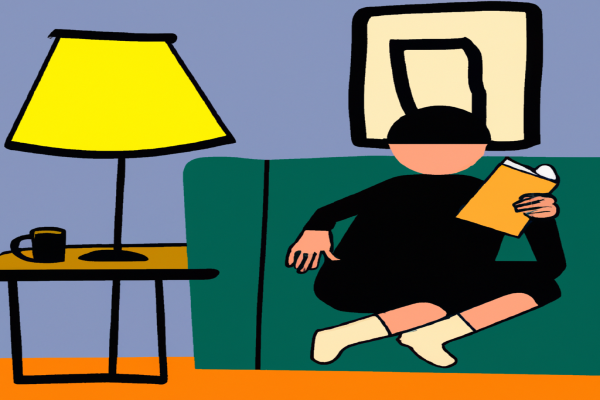The Good Earth: Summary

The Good Earth is a novel by Pearl S. Buck which tells the story of a Chinese farmer named Wang Lung and his family, and their struggles to survive in ancient China. The story follows Wang as he works hard to make his land yield crops, and eventually becomes wealthy enough to marry a servant girl, O-lan. They have two sons, and Wang's wealth grows even more with the help of O-lan's clever management of their finances. Despite some hardships, the family grows in prosperity until a great famine strikes the land. In order to survive, Wang and his family are forced to flee from their home and seek safety elsewhere. Eventually, they return home to find their land has been restored to its former glory. In the end, Wang realizes that material possessions are not as important as family loyalty and love.
Want to know more?
What is The Good Earth about?
The Good Earth is a classic novel by Pearl S. Buck that depicts the life of a Chinese farmer and his family in the early 20th century. The novel follows the struggles and triumphs of Wang Lung, an ambitious and hardworking farmer who faces challenges from both natural occurrences and human interference. The core themes of The Good Earth include family loyalty, respect for nature, the power of land ownership, and the importance of tradition. Wang Lung’s story is one of resilience, as he works to protect his family’s legacy through difficult times. Throughout the novel, Wang Lung learns to appreciate the simplicity of his rural lifestyle, which contrasts with the more extravagant lifestyles enjoyed by those in cities. The novel also explores how different cultures interact with each other and how people can be affected by poverty and war. Wang Lung’s journey is ultimately one of self-discovery as he learns to accept change while still maintaining his own traditions.
The Good Earth: Book Club Questions
- What themes do you think The Good Earth explores?
- How did seeing life through the eyes of a Chinese peasant in the early 20th century shape the way you view power structures today?
- In what ways did Wang Lung's character development evolve throughout the novel?
- How did Pearl Buck use symbolism to illustrate cultural differences between East and West?
- In what ways do you find traditional gender roles portrayed by Wang Lung and O-lan?
- What is the significance of the land for Wang Lung and his family?
- What does the novel tell us about human nature and its relationship with land ownership?
- How did you feel about Wang Lung's descent into materialism and neglect of his family?
- How do you think this story would have been different if it was told from O-lan's perspective?
- Do you think The Good Earth remains relevant today, and why or why not?
What to say about The Good Earth
- The Good Earth is an incredibly powerful exploration of the human condition.
- The novel elucidates how intertwined our lives are with the land and its fertility.
- It's a timeless story of family, tradition, and struggle that still resonates today.
- Pearl S. Buck captures the emotions of her characters so well, creating an immersive reading experience.
- I was impressed by how Buck portrays the complex moral choices faced by her protagonists throughout their journey.
- The book offers a unique perspective on Chinese culture, particularly in regards to gender roles and class structure.
- Buck paints a vivid picture of rural life in pre-revolutionary China, making it easy to visualize the settings described in the novel.
- The Good Earth is a reminder that change is inevitable — and not necessarily a bad thing — as Wang Lung learns to navigate his own life’s transformations and those of his society as well.
- I appreciated the depth of characterization throughout the novel; each character has a distinct arc that contributes to the overall narrative of Wang Lung's story.
- The Good Earth contains many themes relevant to our current times — from environmentalism to intergenerational conflict — making it an engaging read for modern audiences as well as those from its original publication period.
Top 5 Quotes from The Good Earth
- "Life is so wonderful, a thing to be grateful for."
- "If you love someone, the sensible thing to do is to tell them."
- "A man with money can do anything he wants in this world except buy back his own life when it is gone."
- "Loyalty and kindness are worth more than riches."
- "All men are brothers, and should be treated as such."
Adaptations of The Good Earth
Film: 1. The Good Earth (1937) 2. The Good Earth (1954 TV movie) 3. The Good Earth (2007 film) Television: 1. The Good Earth (1975 miniseries) 2. A Chinese Odyssey (1995 TV series) 3. Pearl in the Kingdom (1998 TV series) 4. The Good Earth (2008 TV movie) 5. Pearl of the Orient (2012 TV series) Theatre: 1. The Good Earth, a musical by Robert D. Leonard Jr., with music and lyrics by Robert D. Leonard Jr. and book by Terence McNally, premiered at San Diego's Old Globe Theatre in 2007. Radio: 1. The Good Earth, a radio drama by Peter Jankowski, was first broadcast on BBC Radio 4 in 2004.
Other books by Pearl S. Buck
- The Mother
- Sons
- The Exile
- Pavilion of Women
- The Living Reed
- Peony
- Dragon Seed
- God's Men
- Letter from Peking
- The Big Wave
- A House Divided
- This Proud Heart
- The Young Revolutionist
- Come My Beloved
- Fighting Angel
- Portrait of a Marriage
- Imperial Woman
- Of Men and Women
- Voices in the House
- My Several Worlds
- The Three Daughters of Madame Liang
- Mandala
- Mandala II: The Ropemaker's Daughter
- The Hidden Flower
- Command the Morning
Did you know?
The Good Earth was the first novel by Pearl S. Buck and won the Pulitzer Prize for Fiction in 1932.




